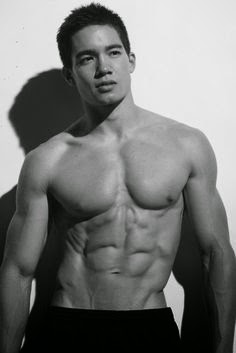 Fall 1987: I'm in grad school in Comparative Literature at the University of Southern California, enrolled in a Seminar in Modern Literature.
Fall 1987: I'm in grad school in Comparative Literature at the University of Southern California, enrolled in a Seminar in Modern Literature.Big mistake. I've had my share of elitist, condescending, heterosexist professors who dismiss everything I like as "plebian," "bourgeois," or "idiotic," but Dr.Lazar is the most elitist, condescending, and heterosexist of them all.
"I don't watch television, of course, but last night I was looking for the news, and...."
"We won't be reading mindless trash in this classroom."
We read only the World's Greatest Authors: Eugene Ionesco, Harold Pinter, and especially The Greatest of the Great, Samuel Beckett (1906-1989).
Beckett was born in Ireland but wrote in French. I'm quite sure that the top photo is a composite, since he wasn't into bodybuilding. Or much of anything else except women -- he rejected socialite Peggy Guggenheim -- who got revenge by starting a rumor that he was gay -- and then married Suzanne Dechevaux-Dumezil. But he also had a long-term romance with BBC writer Barbara Bray.
During his lengthy heterosexual machinations, he managed to stay in good shape through playing tennis. And he wrote Great Literature.
He liked James Joyce, but thought that Ulysses was far too simplistic. After all, if you dig down far enough past all the obscure references, you come up with characters and a plot. He wanted to write plays and novels that had no characters or plots, just random thoughts that made no sense.
Besides, it has pleasant scenes. He wanted to depict the unrelenting agony of life.
While living in Paris and playing tennis with an heiress.
So he wrote horrible plays:
Waiting for Godot: two guys stand around waiting for him, but he never comes. Let the heavy-handed over-symbolic interpretations begin.
Krapp's Last Tape: an elderly crazy guy replays the tapes of his life as he's dying.
Happy Days: in a horrible postapocalyptic world, a woman who is slowly sinking into the ground tries to carry on her daily routines, while her husband (left) walks backwards.
And horrible novels:
Molloy: an elderly man lives in his mother's old room and thinks.
Malone Dies: an elderly, bedridden man is writing a novel about something or other before he dies.
The Unnameable: the inner musings of a deformed being who is apparently blind and unable to move.
Professor Lazar is completely enchanted with the last line: "I can't go on, I'll go on."
"This is a commentary on all our lives," he says. "Determined to endure in spite of the horror."
Ok, he lived through World War II, so he saw some horrors. But now he's a tenured professor who flies off to Paris to give speeches. Surely there's been a few pleasant moments in his life?
Gay subtexts: are the guys in Godot gay? Is Malloy?
"No, of course not. Beckett writes of Everyman, of the universal agony of human experience. He has no time for something so ridiculous as the gays."
I can't go on, I'll go on.
Sorry I can't stick around for more discussions of the universal agony of heterosexual experience. I have to get to the gym, and then I'm meeting Alan for dinner at the French Quarter, and afterwards we're going cruising at Mugi. A paradise of masculine beauty awaits.





I think there is enough suffering in life that I really prefer to avoid in the arts
ReplyDelete